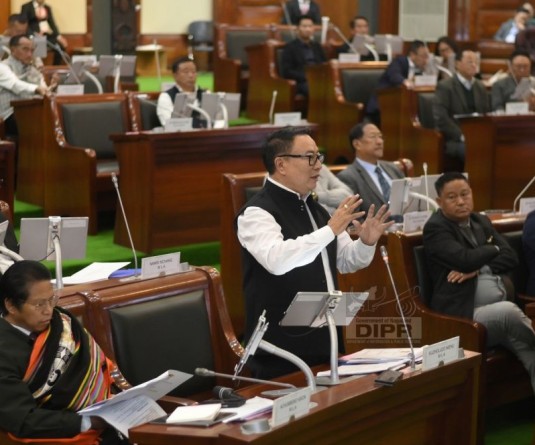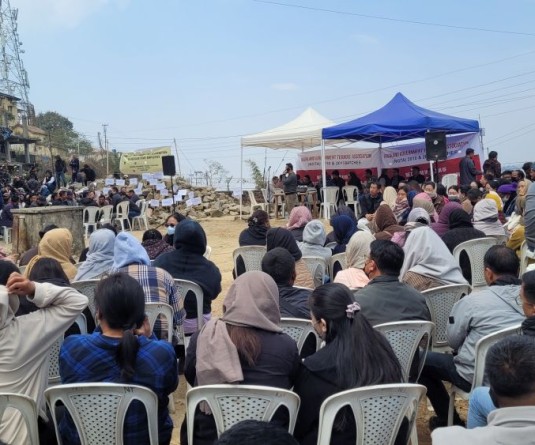Former Indian cricket team wicketkeeper and 1983 World Cup winner, Syed Kirmani in Chümoukedima on February 16. (Morung Photo)

Former India wicketkeeper in Nagaland for The White Owl literature fest
Morung Express News
Dimapur | February 16
There is history between India and Pakistan, and then there is cricket. Public sentiment on both sides reaches manic proportions when the two arch rivals meet in the field, seemingly giving the impression of a rivalry in which the players are ever in an eyeball to eyeball equation. The teams apparently arrive at the venue, get onto the field, compete, pack up and go their separate ways. No small talk, no chitchat, no nothing.
As opposed to the notion of a sour relationship, cricketers from both the countries share great camaraderie, whenever they get to meet, according to the World Cup-winning Indian cricketer Syed Kirmani. Kirmani was wicketkeeper in the Kapil Dev-led team that won the first cricket World Cup for India in 1983.
“But there is no such ill-feeling among the two teams (players),” he told a press conference at the White Owl Bookstore, on February 16. Kirmani is in Nagaland to attend The White Owl Literature Festival & Book Fair, scheduled from February 17 to 19 in Chümoukedima.
He is also slated to speak at one of the literary, story-telling sessions, on the first day, presented by the Nagaland Cricket Association. The 75 years-old Kirmani had released his autobiography — Stumped: Life Behind and Beyond the Twenty-Two Yards in December 2024— published by Penguin Random House India.
His comment was in response to a query about India, and Pakistan, deciding to play ICC matches, including the ICC Champions Trophy 2025, only in neutral venues.
He said that the rival players, as individuals, are friendly and cool with each other. “When we go there, we are treated so beautifully. And when they come here, it's the same thing, we reciprocate: the same friendliness, the same camaraderie…” he said.
He maintained that circumstances vis-à-vis the “security point of view” compels every country, organisation or a cricket board to prioritise the safety of its players.
While the Indo-Pak cricket rivalry gets the entire media spotlight, he made mention of the Border-Gavaskar (India-Australia) and Ashes (England Australia) series that radiates great competitive spirit.
Kirmani was tossed an assortment of questions, including whether Indian cricket should be managed by a cricketer, businessperson or politician. “Whoever it may be, if he's doing a good job as an administrator… Whoever does a great job, it's always appreciated and accepted by and large,” he said.
Cricket has witnessed some great upheavals over the years, altering the traditional format, starting with the introduction of one-days, coloured clothing, technology, rule changes and so on, which has had purists in opposition. He was asked which side he was in, to which he replied that one has to embrace and adapt to new concepts. He though maintained that the Test format remains an essential.
After the ’83 win, he said that cricket in India, took a great leap forward. “It all started after we won the 1983 World Cup. I can very proudly say that we laid a very strong foundation for the current era of administration and the cricketers to build stories on top of our foundation,” he said.
India was the cricket underdog back in 1983. According to him, team India was the fourth weakest team and nobody expected they would even reach the knockout stage.
He said, “Do not give up… be honest to you. Believe in your capability, believe in yourself, and work harder and harder and harder until you succeed.” He recalled that he made three comebacks into the national team. His autobiography is about how he climbed the ladder of success overcoming the barriers along the way, he added.
To cricket in Nagaland, he said that he would be happy to associate and share his experiences.
His session on the first day of The White Owl is scheduled at 11:30 am.






